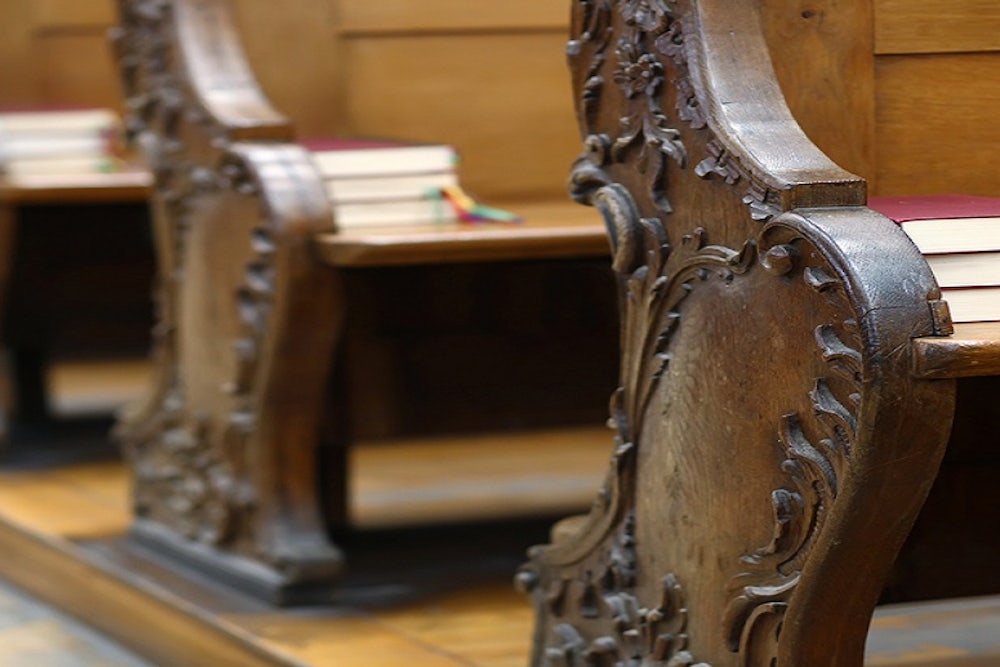A study released Saturday found that Americans tend to exaggerate their religious beliefs—and that liberals are more guilty of it than conservatives.
The Public Religion Research Institute asked participants about their religious affiliation, their belief in God, how often they attend religious services and the importance of religion in their lives. Roughly half were interviewed over the phone and the other half answered an online questionnaire. Of the people interviewed over the phone, 43 percent said they attended religious ceremonies and 27 percent said religion is the most important thing in their lives. Among online respondents, those numbers dropped to 30 percent and 20 percent, respectively.
Why the difference in results? Talking to another human, even an anonymous one, can cause respondents to exaggerate the truth. “It is a rather unconscious cognitive bias,” says John R. Shook, a professor in the Science and the Public EdM online program at the University of Buffalo. “Even if you talk to a live human voice, someone you will never see, someone in Zaire, the brain rationalizes and tries to present itself in the most positive light possible. You can’t help it.”
But it seems that when it comes to worship attendance, liberals are more inclined to do so. PRRI found that over the phone, only 27 percent of self-identified liberals admitted that religion is not important to them; the number jumped to 40 percent of liberals who responded to an online questionnaire. Conservatives were much more consistent: Only 4 percent of telephone respondents and 6 percent of online respondents said the same.
This suggests that although religious affiliation is waning—in the past 20 years, the number of Americans claiming no affiliation has more than doubled to around 22 percent—religion is still seen as a good thing, or at least as socially desirable. If elected officials are any indication of what Americans view as desirable, religious devotion is nearly a requirement. There has never been an openly atheist or agnostic president and only one member of Congress, former Representative Pete Stark, who declared non-believer status while in office. Although Stark, a Democrat from California, entered Congress in 1973, it wasn’t until 2007 that he publicly declared himself a non-believer.
Since then, no current member of Congress has come out as atheist or agnostic, although the number of members who do not claim a specific religious affiliation has risen. In a 2013 Pew poll, 10 members of the current Congress either didn’t choose or didn’t know their religious affiliation, while Representative Kyrsten Sinema, of Arizona, explicitly chose “unaffiliated.” All eleven members are Democrats.
Michael Wear, the director of faith outreach for President Obama’s reelection campaign, says religion is disproportionately represented in politics because it’s equated with compassion, charity, and fairness. “People want to align themselves with those kinds of ideals. People use religion as a stand-in for a whole number of traits we deem desirable from a secular perspective.”
But does the disparity in liberals’ responses to the PRRI poll suggest that many of them are hesitant to admit publicly that they’re not as religious as they claim?
“I think there’s absolutely a level among liberals of not wanting to be defined by their lack of belief,” says Wear. “But there’s also an element of wanting to hold on to the spiritual benefits or comfort of theological beliefs that come with religion, while not wanting to be associated with a lot of the public implications of faith, including social issues.”
Correction: A previous version of this article incorrectly stated that Michael Wear was the director of faith outreach for Obama’s two presidential campaigns. Wear only held that position for Obama's 2012 campaign.
